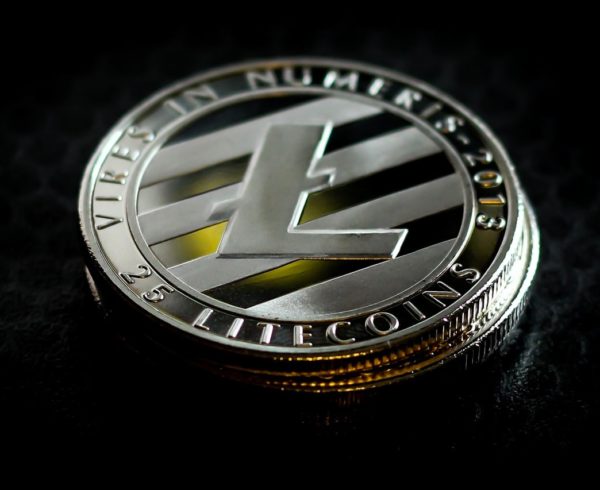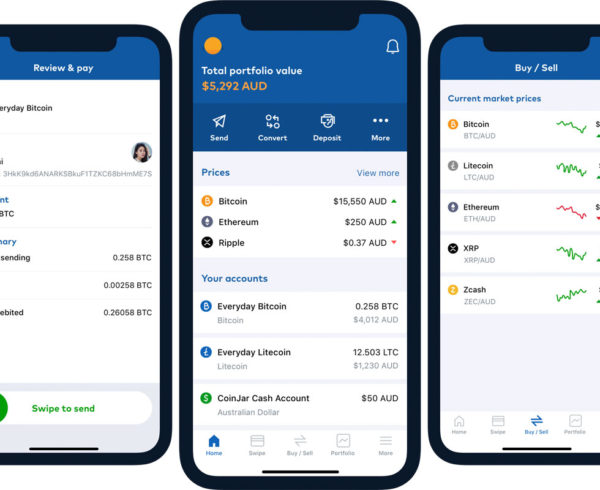The end of the Australian financial year is right around the corner. When it comes to a close on the 30th of June, you will have to busy yourself preparing tax returns, so you can lodge it before the deadline, which is on the 31st of October.
As you probably already know, cryptocurrencies have taken the country by storm. A lot of Australians want a piece of the action. While it most certainly has attracted tons of investors and traders, it has also caught the attention of the Australian Taxation Office. They are currently on high alert for cryptocurrency claims during tax time. They even published a guidance paper, detailing the tax treatment of Bitcoin and other digital currencies that have similar characteristics.
Disclaimer
If you’re new to the world of cryptocurrency, don’t fret. In this article, we will provide you with a general understanding of the tax treatment of Bitcoin and several other cryptocurrencies in Australia. The guide will cover the ins and outs of tax implications for individual investors. It will also touch on the tax consequences for businesses that transact with virtual currencies.
Any advice offered in this post will be based on the author’s own understanding of the tax ramifications of investing in cryptocurrency as presented in the ATO’s guidance paper. It’s crucial to remember that none of it can be considered financial advice. Remember that the tax treatment of cryptocurrency all depends on your particular situation. If you are unsure about how you should prepare your tax returns correctly, it’s best if you consult a tax accountant.
What is Cryptocurrency?
A cryptocurrency is a digital currency that is powered by blockchain technology. This technology is responsible for regulating the release of units of currency and verifying transactions. With this system, digital currency networks don’t have to rely on governments, banks, or financial authorities.
A blockchain refers to the digital public ledger that records all transactions. A single record or an entire series is called a block. The network verifies each block and accepts it before adding it to the ledger. No one can alter records once it becomes part of the blockchain.
Bitcoin is perhaps the most famous cryptocurrency today. It serves as the gold standard of the digital currency market. But there are several other virtual currencies out there – Ethereum, Ripple and Litecoin, to name a few.
How ATO Views Cryptocurrency
Before anything else, you should know how the ATO views cryptocurrency. In May of last year, the organization made it known that they would treat cryptocurrency like money. They also passed a legislation that officially ended double taxation, which meant that goods and services taxes were no longer applicable to the purchase or disposal of virtual cryptocurrencies. But earlier this year, the ATO confirmed that they now see them as property.
Based on the guide they published, the institution no longer sees cryptocurrencies as money or foreign currency. They treat Bitcoin and other digital currencies as a form of property, which means profits gained from selling them will be subject to capital gains tax.
If you’ve purchased Bitcoin but haven’t done anything about it yet, you probably don’t have anything to report. But if you sold it within the last year, you must have to indicate your gains and losses. When you profit from the disposal of your cryptocurrency, some, if not all, will be taxed. But if your virtual currency can be treated as personal use assets, you should be exempted.
Let’s take a look at the tax principles that apply to cryptocurrencies in 2018.
Cryptocurrency as an Investment
By purchasing cryptocurrencies as an investment, you may be taxed for capital gains acquired from its disposal. If what you receive from selling, trading, or exchanging these digital currencies exceeds the purchase price, it is a capital gain. When it is less than the cost base, it is considered a capital loss.
It’s important to remember that when you’ve acquired cryptocurrencies as an investment, you will not be entitled to a personal use asset exemption. But if you held onto your digital currencies for at least 12 months, you may get a CGT discount.
Here’s an example. You have several holdings in different public companies, composed of both high and low-risk investments. Some of it generates income while the rest doesn’t. Let’s say a financial adviser encouraged you to invest in cryptocurrency. You followed the advice even though you don’t know much about it. You continued to adjust your portfolio depending on investment weightings. If you sell your cryptocurrencies, the proceeds will be subject to CGT.
Bitcoin Capital Gains Tax
Whenever you dispose of your virtual currencies, a CGT event happens. That means when you sell, trade, exchange or convert your Bitcoin into a fiat currency such as the Australian dollar, you either make a gain or a loss. Each time a CGT event happens, you must find out your net capital gain or loss for the year.
To illustrate the process, let’s look at an example.
Let’s assume that you purchased 1 BTC for $8,000 AUD in July of 2017. In the succeeding months, its value increased to $10,000 AUD. You sold 0.5 BTC in January 2018 for $10,000. Since you gained proceeds worth $5,000 from the sale, you triggered a CGT event. You must then calculate the profit so you can declare it on your tax return.
To calculate your capital gain, determine your cost base. Remember that you sold 0.5 BTC, and you originally paid $8,000 for 1 BTC. That gives you a cost base of $4,000. Next, subtract the cost base from the sale price, and that will leave you with $1,000 profit. That’s the amount you will record under the capital gains section of your income tax return.
You need to consider several other factors when calculating for your capital gains, one of which is a 50% discount. By holding on to your cryptocurrency for over 12 months, you can get a discount on your capital gain.
Personal Use Asset
Only when you keep cryptocurrencies solely for purchasing items for personal use or consumption can you classify them as personal use assets. For example, you intend to buy new furniture. The store that you like is offering discounted prices for payments made in Bitcoin. You buy a thousand dollars’ worth of Bitcoin and use it to pay for the items you liked. In this case, the digital currency is a personal use asset.
A cryptocurrency can’t be called as such if it has been acquired, kept, or used as an investment, in a revenue-generating scheme, or in the course of maintaining a business. For instance, you’ve been investing in Bitcoin for a few months. You purchase when the price plummets and sell it at a favourable rate. Even when you use it to pay for goods or service, the cryptocurrency won’t be considered a personal-use asset since you bought Bitcoin as an investment.
Capital gains or losses incurred from disposing of cryptocurrencies considered as personal use assets may be disregarded. However, only the capital gains you acquired from personal use assets purchased for less than $10,000 will not be considered for CGT purposes. As for all capital losses from personal use assets, you can disregard them.
Record Keeping
You won’t be able to rely on your preferred coin exchanges for help with tax reporting or record-keeping. That’s why you need to take matters into your own hands and take note of transactions related to cryptocurrency. You need to note down the following details:
- Date of the transactions
- Value of cryptocurrencies in Australian dollars at the time the transaction was carried out
- The purpose of the transaction
- Who you were transacting with (their cryptocurrency address will do)
Carrying on a Business
When you’re carrying on a business, the funds or property you receive from purchasing or disposing of cryptocurrency will be assessable as ordinary income. With profits that can be categorized as such, you can claim deductions. Plus, the capital gains you acquire can be reduced to ordinary income.
Another scenario where the proceeds from the disposal of cryptocurrency can be considered ordinary income is when it is held as trading stock in a company. Here are examples of businesses that deal with digital currencies:
- Cryptocurrency traders
- Cryptocurrency mining businesses
- Cryptocurrency exchanges and ATMs
Note that not everyone involved in acquiring or disposing digital money is carrying on businesses. You need to be doing the following to carry on business:
- undertaking activities for commercial purposes and in commercially sustainable ways
- executing activities in a business-like manner e.g. creating business plans, obtaining capital assets based on that plan
- readying your accounting records
- marketing a brand or product
- intending to generate revenue if unable to do so in the short term
- maintaining routine and regular commercial activities
Money or property that’s received before the business is carried on may not count as assessable income. The same goes for deductions. You can’t claim them if they were acquired before the business was carried on.
Using Cryptocurrency for Business Transactions
As already mentioned, you need to record your virtual currency transactions. One particular detail that you must take note of is the value of the cryptocurrency you receive in Australian dollars. Whenever you receive digital currency for products sold or services rendered, you must remember to record its value. Always use a reputable exchange as a reference when you’re converting its value in Australian dollars.
The same thing goes when you’re buying business items using digital currency. Keep a record because you might receive a deduction. It will be based on the value of the object purchased.
Exchanging a Cryptocurrency for Another Cryptocurrency
At some point, you might want to exchange Bitcoin for a different cryptocurrency. That is possible, by the way. You can trade one digital currency for another in what is called a coin to coin exchange. When you do this, you are disposing of a CGT asset and gaining a new one.
To check if you have made a capital gain or loss, identify the market value in Australian dollars of both Bitcoin and the new cryptocurrency you received. Let’s say it is worth $8,000. Now that you have your capital proceeds, you can check if you incur a loss or gain. When your proceeds exceed the purchase price, it is a capital gain. It’s a loss if it’s less than the cost base.
Paying Salary or Wages in Cryptocurrency
An employee may receive their salary in the form of cryptocurrency instead of Australian dollars, that is if they have a valid salary sacrifice arrangement with employers. This payment will be considered a fringe benefit, which refers to additional compensation provided to employees. The employer, on the other hand, will be subject to the Fringe Benefits Tax Assessment Act of 1986.
Payment will be treated as normal wage if employees specifically ask to be paid in cryptocurrency, even though there isn’t a valid salary sacrifice agreement between them and their employer. As for their bosses, they will have to meet payment obligations on the Australian dollar value of the digital currency given to the employees.
Bitcoin Tax Evasion (Don’t Do It)
Many investors still believe that cryptocurrency profits are tax-free. That’s not the case, as we mentioned above. ATO has made it clear that gains from the disposal of virtual cryptocurrencies like Bitcoin can be taxable. Neglecting your obligations wouldn’t be wise as the ATO is going after crypto investors. They are using data matching and 100-point identification checks to obtain more information on the secret world of cryptocurrency. With these methods, they can access and assess cryptocurrency exchange accounts.
The ATO is looking for tell-tale signs that will point them in the direction of tax evaders. The government agency formed a special task force designed to track all cryptocurrency transactions in Australia for tax purposes. So don’t even think about avoiding your obligations because they are ready to take strong action whenever needed.
References:
https://www.ato.gov.au/misc/downloads/pdf/qc42159.pdf
https://www.finder.com/what-is-cryptocurrency
https://news.bitcoin.com/australian-taxation-office-creates-task-force-to-go-after-bitcoin-traders/
https://cointelegraph.com/news/australian-tax-office-to-crack-down-on-crypto-tax-evaders
https://www.reddit.com/r/BitcoinAUS/comments/7n78a3/tax_megathread/








Leave a Comment